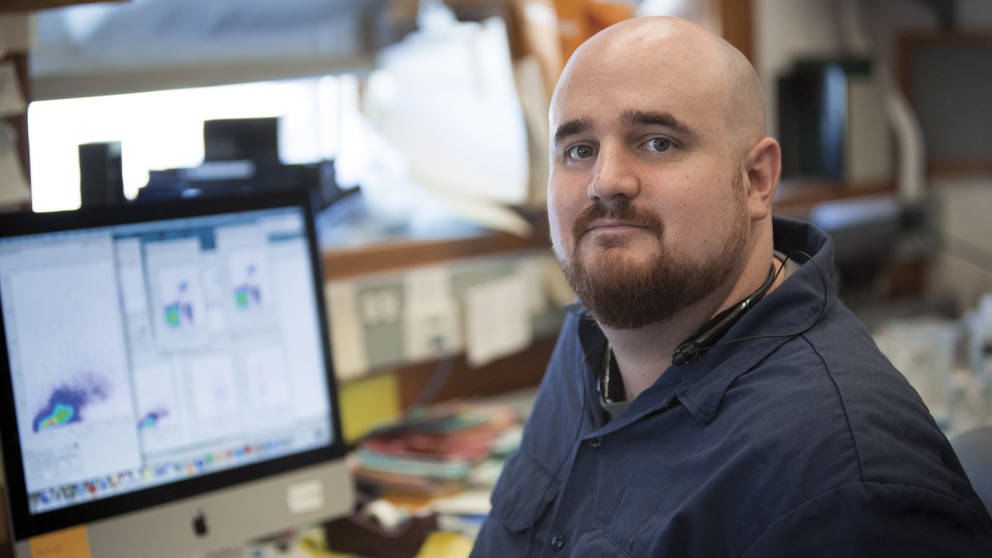
Q. What is your academic background?
A. I did my undergraduate work at Cornell University where I majored in biochemistry and spent much of my free time as a member of the Cornell University Emergency Medical Service. My first taste of research was the two summers I spent as an intern in a nephrology laboratory at Yale School of Medicine. After graduating from Cornell, I decided to test the waters of a career in research. I spent three years at Harvard Partners Center for Genetics and Genomics/Brigham and Women’s Hospital as a research technician in a Drosophila genetics laboratory, while continuing to take night classes at Harvard Extension School. It was here that I first delved into immunology. After leaving Boston, I attended the Irell & Manella Graduate School of Biological Sciences at City of Hope National Medical Center in Duarte, Calif. I anticipated continuing work as a biochemist but instead joined the laboratory of Dr. Defu Zeng, studying type 1 diabetes and hematopoietic stem cell transplantation.
Q. Why did you apply to the Laboratory’s Postdoctoral Scholars Program?
A. The Jackson Laboratory offers a unique opportunity to learn and make use of powerful mammalian genetic tools. Prior to joining JAX, my research was limited to using currently available mouse models. I was intrigued by the idea of joining an institution where I would have access to the latest, or help generate the newest, mouse models for studying and treating type 1 diabetes. Additionally, I was attracted to the attention JAX paid to training postdocs beyond the bench work. The attention to detail in training a “whole scientist” appealed to me.
Q. What have you gained from the program so far?
A. I have only been at JAX a few months, but my decision to train here has already started to pay off. Soon after arriving I had an opportunity to attend the annual Short Course on Medical and Experimental Mammalian Genetics and rapidly was exposed to the newest knowledge in mouse and human genetics. It was an excellent primer for someone like me who had not been heavily exposed to genetics in some time. Some of my early experiments in the lab have already led to the decision to generate a new mouse model for me to work with, and because of the expertise here at JAX, I should soon be receiving some founder mice to start establishing this new model. I had considered myself fortunate as a graduate student to have some exposure in handling a mouse colony, but I have already learned a lot more since coming to JAX. This early exposure will be indispensable to having and maintaining my own mouse colony at some point in the future.
Q. What are you researching?
A. I am currently working in the laboratory of Dr. David Serreze and studying treatments to prevent type 1 diabetes in “humanized” NOD mice that harbor the human-diabetes-relevant allele HLA-A2.1. While traditional mouse models have served us well in understanding how autoimmune diseases develop, it will be this next generation of humanized mice that will help scientists expand the number of useful therapies for autoimmune diseases from the mouse to the clinic.
Q. What do you plan to do after completing the program?
A. It is my hope that at the end of the program I can obtain a position at an academic institute where I have both research and teaching responsibilities. I have been fortunate in my career to have some excellent mentors who have instilled in me a love of research, and I hope to pass that love of science on to the next generations in both the classroom and laboratory. Additionally, with my exposure to humanized NOD mouse models here at JAX, I hope to expand my work into humanized mouse models of other autoimmune